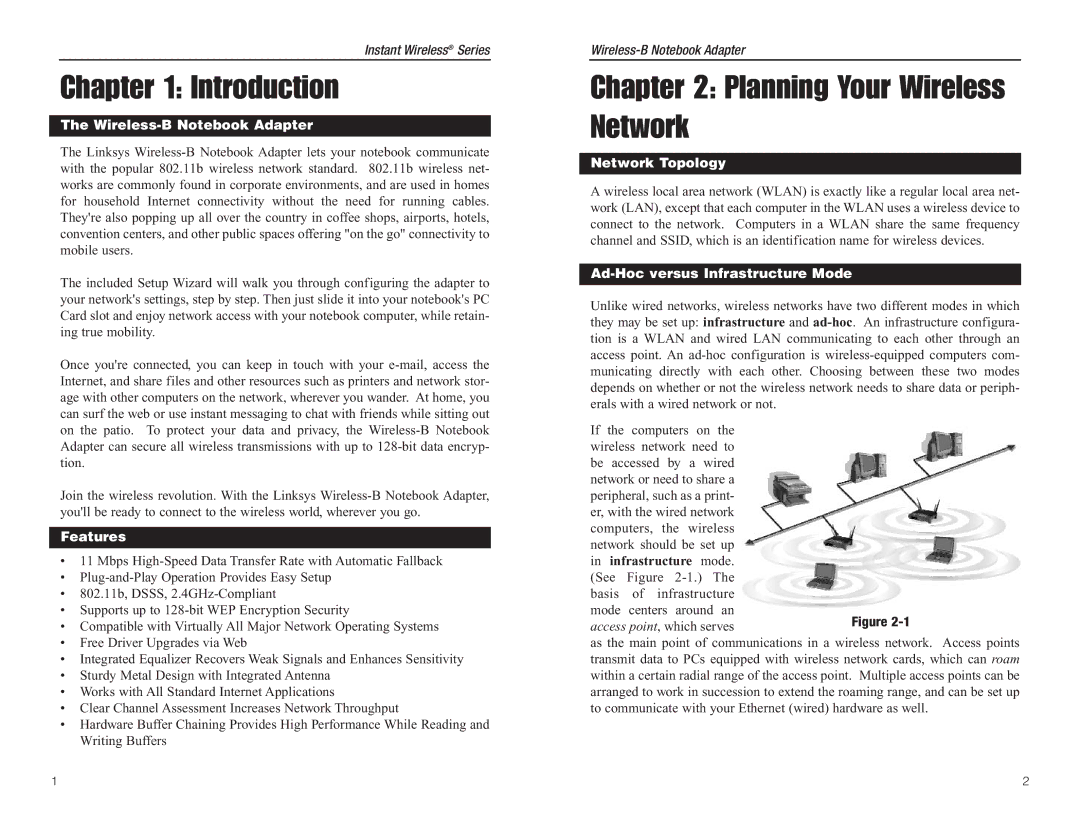
Instant Wireless® Series
Chapter 1: Introduction
The Wireless-B Notebook Adapter
The Linksys
The included Setup Wizard will walk you through configuring the adapter to your network's settings, step by step. Then just slide it into your notebook's PC Card slot and enjoy network access with your notebook computer, while retain- ing true mobility.
Once you're connected, you can keep in touch with your
Join the wireless revolution. With the Linksys
Features
•11 Mbps
•
•802.11b, DSSS,
•Supports up to
•Compatible with Virtually All Major Network Operating Systems
•Free Driver Upgrades via Web
•Integrated Equalizer Recovers Weak Signals and Enhances Sensitivity
•Sturdy Metal Design with Integrated Antenna
•Works with All Standard Internet Applications
•Clear Channel Assessment Increases Network Throughput
•Hardware Buffer Chaining Provides High Performance While Reading and Writing Buffers
Chapter 2: Planning Your Wireless Network
Network Topology
A wireless local area network (WLAN) is exactly like a regular local area net- work (LAN), except that each computer in the WLAN uses a wireless device to connect to the network. Computers in a WLAN share the same frequency channel and SSID, which is an identification name for wireless devices.
Ad-Hoc versus Infrastructure Mode
Unlike wired networks, wireless networks have two different modes in which they may be set up: infrastructure and
If the computers on the wireless network need to be accessed by a wired network or need to share a peripheral, such as a print- er, with the wired network computers, the wireless network should be set up in infrastructure mode. (See Figure
as the main point of communications in a wireless network. Access points transmit data to PCs equipped with wireless network cards, which can roam within a certain radial range of the access point. Multiple access points can be arranged to work in succession to extend the roaming range, and can be set up to communicate with your Ethernet (wired) hardware as well.
1 | 2 |
